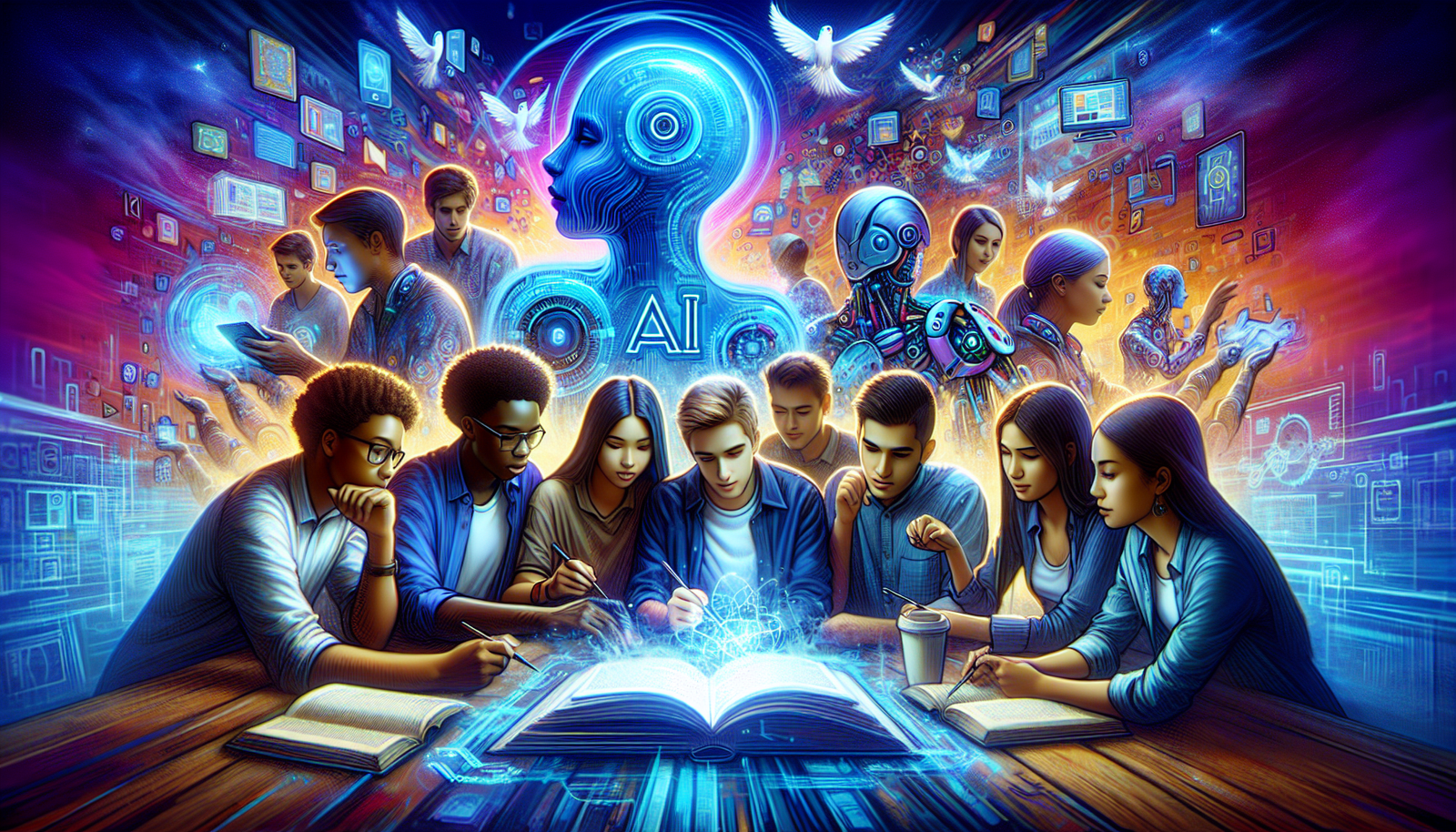Artificial intelligence emerges as a major transformative factor in the educational field. This technological innovation offers various solutions to address contemporary challenges in learning. Through personalized teaching methods and dynamic support, AI reinvents the educational journey of each student. The introduction of intelligent tools promotes learner empowerment, thereby enriching their motivation and engagement.
An education tailored to the uniqueness of each individual becomes finally possible. AI, capable of analyzing individual needs and preferences, excels in adjusting content and methods. Artificial intelligence also stimulates teachers’ creativity by providing them with unprecedented resources to shape an engaging learning environment.
The opportunities for innovation are immeasurable. Each educational institution can finally consider innovative approaches such as data-driven learning pathways. This change through artificial intelligence proves to be decisive for building skills adapted to the challenges of tomorrow.
Artificial Intelligence and Its Educational Applications
The use of artificial intelligence in the educational sector is establishing itself as a true revolution. Platforms are emerging, such as Stewdy, illustrating how AI facilitates learning. These innovative tools allow students to progress at their own pace, benefiting from personalized educational programs tailored to their needs.
Personalization of Learning Pathways
One of the main advancements lies in the personalization of educational pathways. AI analyzes students’ strengths and weaknesses, offering them tailored recommendations. This promotes learning that aligns with each learner’s pace and style, creating a unique educational experience.
Improvement of School Engagement
Virtual tutors powered by AI play an essential role in improving school engagement. These intelligent assistants, accessible 24/7, can answer students’ questions and provide additional explanations. Thus, they enhance students’ involvement in their learning.
Ethical Challenges and Opportunities
The rapid deployment of AI in education raises undeniable ethical issues. The risks of dependency on these technologies, as well as those related to data protection, must be addressed. Educators must navigate while avoiding potential pitfalls, keeping in mind the principles of transparency and fairness.
Professional Training and AI
Professional training also benefits from the integration of AI, which offers flexible solutions adapted to the demands of the labor market. This allows for skill enhancement, quick responses to sectoral changes, and prepares students for dynamic work environments.
Toward Innovative Education
The development of innovative teaching tools powered by artificial intelligence provides teachers with the opportunity to adopt disruptive pedagogical methods. By integrating interactive simulations and immersive learning environments, AI transforms the way knowledge is transmitted and absorbed.
Human Collaboration and AI
AI asserts itself as an essential partner in the educational field. By enhancing teachers’ capabilities rather than replacing them, it facilitates the emergence of a collaborative educational model. Teachers, equipped with intelligent tools, can focus on more qualitative interactions with their students.
Future Perspectives
Advancements in artificial intelligence offer an unprecedented horizon of opportunities. The transformation of education requires the commitment of all stakeholders: institutions, educators, students, and parents. By adopting this technology, the educational system can envision historically unprecedented learning methods.
For More Information
Education professionals can consult the latest research on AI through links such as the analysis of AI, or a podcast on conspiracy theories. Additionally, articles on the impact of AI on customer relationships can be found here.
Frequently Asked Questions about AI in Education
How can artificial intelligence personalize students’ learning?
Artificial intelligence allows for the analysis of students’ performance and preferences, thereby offering tailored educational pathways to meet their individual needs. This promotes more effective and engaging learning.
What are the benefits of AI for teachers?
Teachers can benefit from AI by obtaining analytical tools that help them identify their students’ difficulties. Additionally, it enables them to automate certain administrative tasks, allowing more time to focus on teaching.
What platforms use artificial intelligence to improve learning?
Platforms such as Stewdy use AI to design interactive and tailored learning experiences, providing personalized resources based on user feedback and learning data.
What risks can the use of AI in education create?
While AI offers enormous advantages, concerns such as the protection of student data, the risk of bias in algorithms, and excessive dependency on technology must be considered. Appropriate regulation is essential.
How can AI support struggling students?
By offering targeted exercises and learning sequences, AI can help detect academic gaps and propose tailored solutions, thus favoring better support for struggling students.
Can AI improve student engagement during classes?
Yes, AI can create more interactive and immersive learning experiences, encouraging students to participate actively. Tools such as chatbots and intelligent tutoring platforms also contribute to this.
What challenges are related to the integration of AI into educational systems?
Challenges include training teachers to use these new technologies, the funding required to implement AI systems, and the necessity of expanding access to all students to avoid a digital divide.
How does AI influence the development of students’ skills?
AI enables the development of essential skills such as critical thinking, problem-solving, and autonomy by offering realistic learning scenarios and tasks tailored to each student.
What types of data does AI use to personalize learning?
AI systems collect a variety of data, such as exam results, time spent on learning modules, and interactions with educational content, in order to better understand students’ needs and behaviors.
How to ensure that AI does not replace the teacher?
It is crucial to see AI as a complement to traditional teaching. Teachers must continue to play a central role in education, guiding students and providing them with the emotional support that AI cannot offer.






